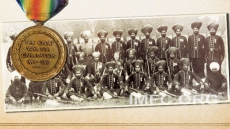In 2017 alone, a 25 per cent increase in deceased organ donors helped save a record-breaking 479 lives in British Columbia.
Four-time Olympic gold medallist, Hayley Wickenheiser, has promised to donate her brains to the Concussion Legacy Foundation to research her condition of dizziness and nausea caused due to getting hit while playing. Not just her, many famous celebrities around the world have pledged to donate their organs after death. But you needn’t be celebrity to be a hero.
By donating an organ, you don’t just transform the life of the recipient; you also touch the lives of their loved ones. In 2017 alone, a 25 per cent increase in deceased organ donors helped save a record-breaking 479 lives in British Columbia. BC is one of the leading provinces in Canada for deceased donation. Its deceased donor rate has increased to 24.9 per million people from 20.3 in 2016. The province also happens to be a leader for living kidney donation.
Ed Ferre, the Provincial Operations Director at BC Transplant says, “Statistically, more kidney transplants take place in BC than other organs. This is because we can perform living kidney transplants, where a person who is alive donates one of their two kidneys to someone else. Also, one deceased donor makes transplants to two different recipients possible.”
While being proud of ushering happiness into so many families, he also expresses his concern saying, “There are currently more than 600 people in BC waiting for life-saving transplants.” But the situation is definitely better than last year. The increase in donors in 2017 increased the total transplants to a 13 per cent, which is significant. There were 225 deceased donor kidney transplants and 52 lung ones just in 2017, a substantial 30 per cent increase. A record number of 80 liver transplants were performed last year, which is a great eight per cent increase.
Apart from deceased donation, 97 living kidney donor transplants were performed. “More lives are being saved thanks to life-saving transplants,” says Dr. David Landsberg, BC Transplant’s Provincial Medical Director, Transplant Services. “This is a result of system changes we’ve made over the past few years and also a shift in our culture to one that fully supports organ donation as a normal end-of-life option.”
Moving from just one lung transplant in 2016 to 52 in 2017, Dr. John Yee, Medical Director of the BC Lung Transplant Program says, “We’ve had a dramatic increase in lung transplants in British Columbia. There are many factors that have affected this increase; the greater availability of organs, and a well-trained and experienced team that can manage the demand while achieving excellent health results for our patients.”

Saving lives and giving someone a gift they will cherish forever is a fulfilling feeling. Yet many are unaware of how important their decision can be to someone in need. Sadly, a third of the Canadians who need a transplant will never receive one. On an average, 250 Canadians die each year waiting for the miracle to happen. “It’s important that we continue to raise awareness – through our community partnerships, our volunteers, and our work in the community. The more conversations we can have about organ donation, the more people will register their wishes, which in turn, will hopefully result in more people getting the life-saving transplants they need,” adds Ferre.
BC Transplant is working together with ICBC to create more buzz around organ donation. With so many British Columbians visiting ICBC offices daily, it makes for an excellent platform to increase awareness.
Everyone believes donating organs is the right thing to do, but don’t make an effort to actually register their wishes. About 50 per cent of British Columbians believe they have registered their decision on organ donation, but the fact is only 21 per cent have actually done so. Ferre points out that the registration is not linked to the driver’s license but to one’s personal health number in an electronic database only BC Transplant can access.
Every year in April, BC Transplant runs an awareness campaign to support the National Organ and Tissue Donation Awareness Week (NOTDAW). Ferre explains that NOTDAW is “an annual, nation-wide recognition week in support of organ and tissue donation. It includes registration drives and a green light campaign where buildings around the province are lit green in support”
Any BC resident 19 years and older can register their wishes. For those below the age, parents need to take charge. Age doesn’t matter if you intend to be a donor. Canada’s oldest organ donor was in fact 92 years old. If previous medical history is stopping you from taking the step, rest assured doctors have their tests ready. They will tell you exactly what you can donate and what you can’t. Typically a healthy organ donor can donate his/her heart, lungs, kidney, liver, pancreas and corneas. For a deceased transplant, organ donation is considered only after all life-saving efforts are made and survival is impossible.
As of January 1, 2018, 638 people were still waiting for an organ transplant in BC, and the need keeps growing. “We ask that anybody who wishes to be a donor speak to their families and register their wishes. Only 1% of people die in a way that enables them to become organ donors. This is because organ donors must pass away in a hospital ICU in order to make sure the organs are viable for transplant” shares Ferre.
We encourage one and all to step up, talk to your families and arrive at a decision. It takes two minutes of your time to gift someone a lifetime with their family. So go ahead, register you decision to be a hero at:
LiveOn.ca or
transplant.bc.ca or fill out the paper form at an ICBC driver licensing office or a Service BC office.
Quick facts on organ donation
-
You are more likely to need a transplant in your lifetime than become an organ donor.
-
Organ donation can save up to eight lives. An organ donor can donate: heart, lungs, kidneys, liver, pancreas and corneas.
-
Donation is considered only after all life-saving efforts are made and it’s certain you will not survive.
-
Two doctors, not involved in transplant, must declare your death before organ donation can proceed.
-
There is no age limit for organ donation. Canada’s oldest organ donor was 92 years old.
-
You can register your wishes regardless of any previous medical history. The doctors will do the testing at the time of donation to determine if and what you can donate.
-
Any BC resident who is 19 years of age or older can register their wishes for organ donation regardless of gender, medical history or religion. Parents can register their children under the age of 19.
-
It’s important to have a conversation on organ donation and about your wishes with your family.









